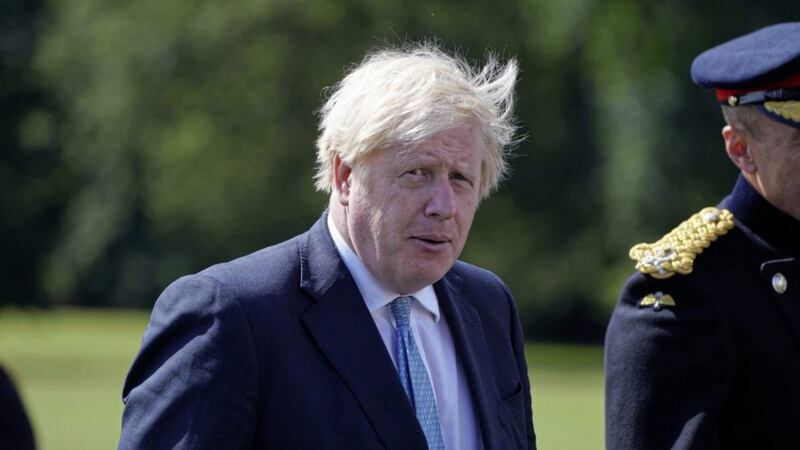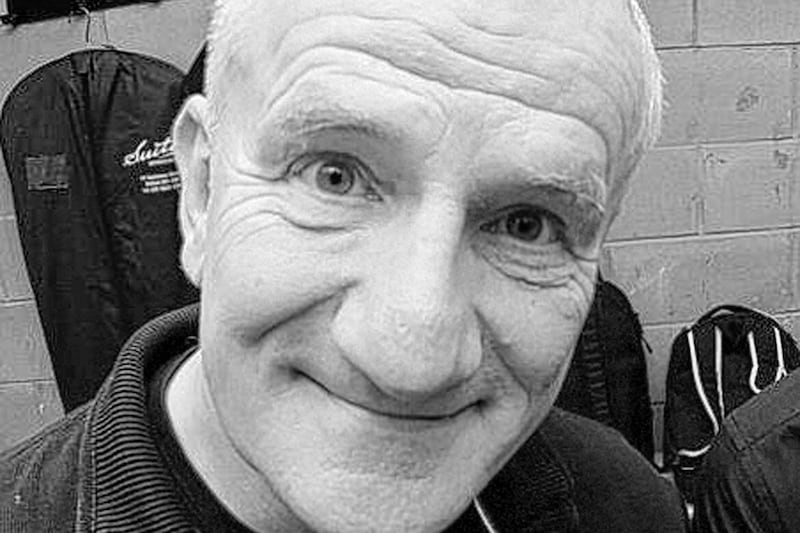I know what it's like to work for the minimum wage; I also know what it's like to ride a bicycle because I couldn't afford a car.
Then, after six years and having bought my first car, I had to sell it as I needed that money for the deposit on my first home. However, knowing all this does not mean I know anything about poverty, for real poverty is something completely different.
While intellectually I can grasp the concept, I have not lived its reality. I was fortunate enough to be born at a time when there was a properly-funded NHS and welfare system, putting me in a position most of humanity could but dream of.
I was further advantaged to be born into a family where both parents worked hard and ran a small business. I'm also lucky in that whilst being grumpy, I found work as a comic; whilst being hopeless with numbers, I run a small business; and whilst being unable to spell, I've written for television, radio, the stage and newspapers.
I know many would argue luck has had nothing to do with my present position; they would say that talent and hard work is the reason for my modest success in life. If that were true, then everyone would live with a level of comfort and security. This is not our reality.
I remember seeing a billboard sign which had a slogan stating that most people were two pay packets away from homelessness. It was an impactful message, but being a self-employed comic, I joked that having seen it, I immediately gave myself a pay raise.
I have never forgot that poster and, sadly, I believe it is truer today than ever before. The concept of the 'working poor' is hard to comprehend for my generation; how can anyone be working yet still need food banks and clothes and furniture from charity shops?
The answer is, that having destroyed labour unions and introduced job insecurity through zero-hour contracts, workers have been forced to sell their labour for wages which leave them in poverty. And so, a rising number of families find themselves unable to meet the most basic needs of housing, heating, clothing and food.
The decision by Boris Johnson to cut the £20 a week Universal Credit 'uplift' next month has been rightly described by former Prime Minister Gordon Brown as the most "socially divisive and morally indefensible" policy he's witnessed in UK politics.
Perversely, as 10 Downing Street pushes ahead to strip money from the nation's poorest, one door up in 11 Downing Street, Chancellor Rishi Sunak is finalising a policy shift which will also see a change in people's income - only this time, the people concerned are the one per cent wealthiest section of society, namely bankers.
Plans to throw out a banker's bonus cap, introduced by the EU after the banking sector almost bankrupt the world in 2008, will result in banking bonuses rising from hundreds of thousands to millions.
That bankers are to be one of the first beneficiaries of Brexit is hardly surprising when you consider who made this statement: "I can't think of any other politician, even Conservative politician, who from the crash of 2008 onwards actually stuck up for the bankers. Can you think of anybody who stuck up for the bankers as much as I did? I defended them day in, day out, from those who frankly wanted to hang them from the nearest lamppost."
That was Boris Johnson, in June 2019...
****
TO be a NI politician requires a peculiar set of attributes, pre-eminent being the possession of a brass neck. Every morning you must rise early and polish that neck so, when needed, it will stiffen and ensure your head doesn't fall off as you exaggerate, posture and pontificate.
So it was when DUP leader Jeffrey Donaldson, with a straight face and small mouth, argued the decision of the Irish President not to attend a partition commemoration was baffling considering it was "a religious event".
I mean, when has religion ever featured in NI politics? But the brass-neckery didn't end there; Jeffrey went on to criticise Michael D Higgins for having said "no".
I'm reaching my word count in this column so if this ends abruptly, you'll understand. Here are but some of many things Jeffrey's party have said 'no' to:
Power sharing, Sunningdale Agreement, Anglo-Irish Agreement, Good Friday Agreement, integrated education, gay marriage, LGBT rights, evolution, end of death penalty, climate change, Theresa May's Brexit deal, NI Protoc...









